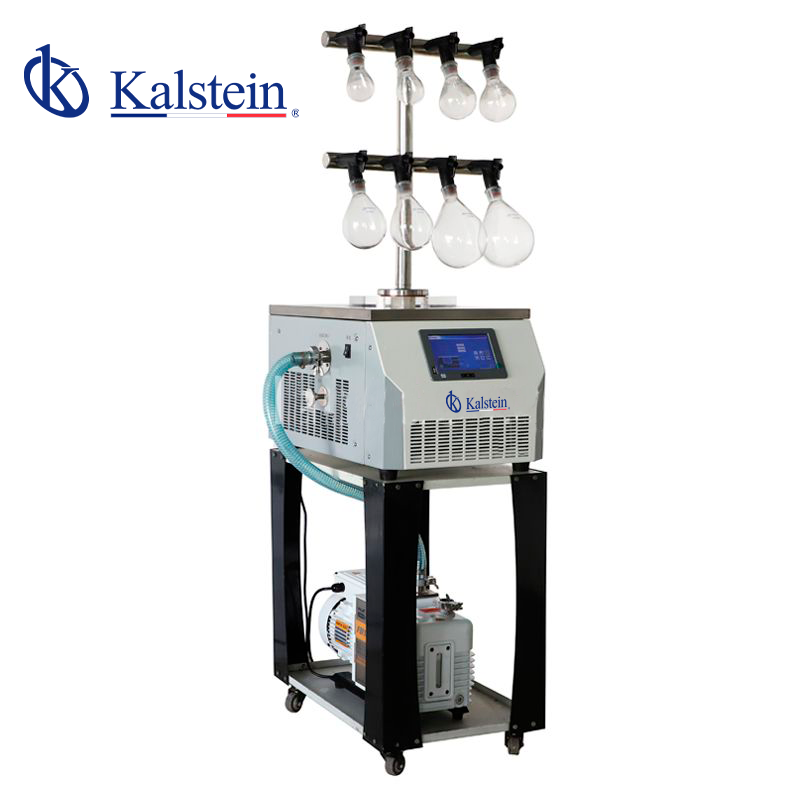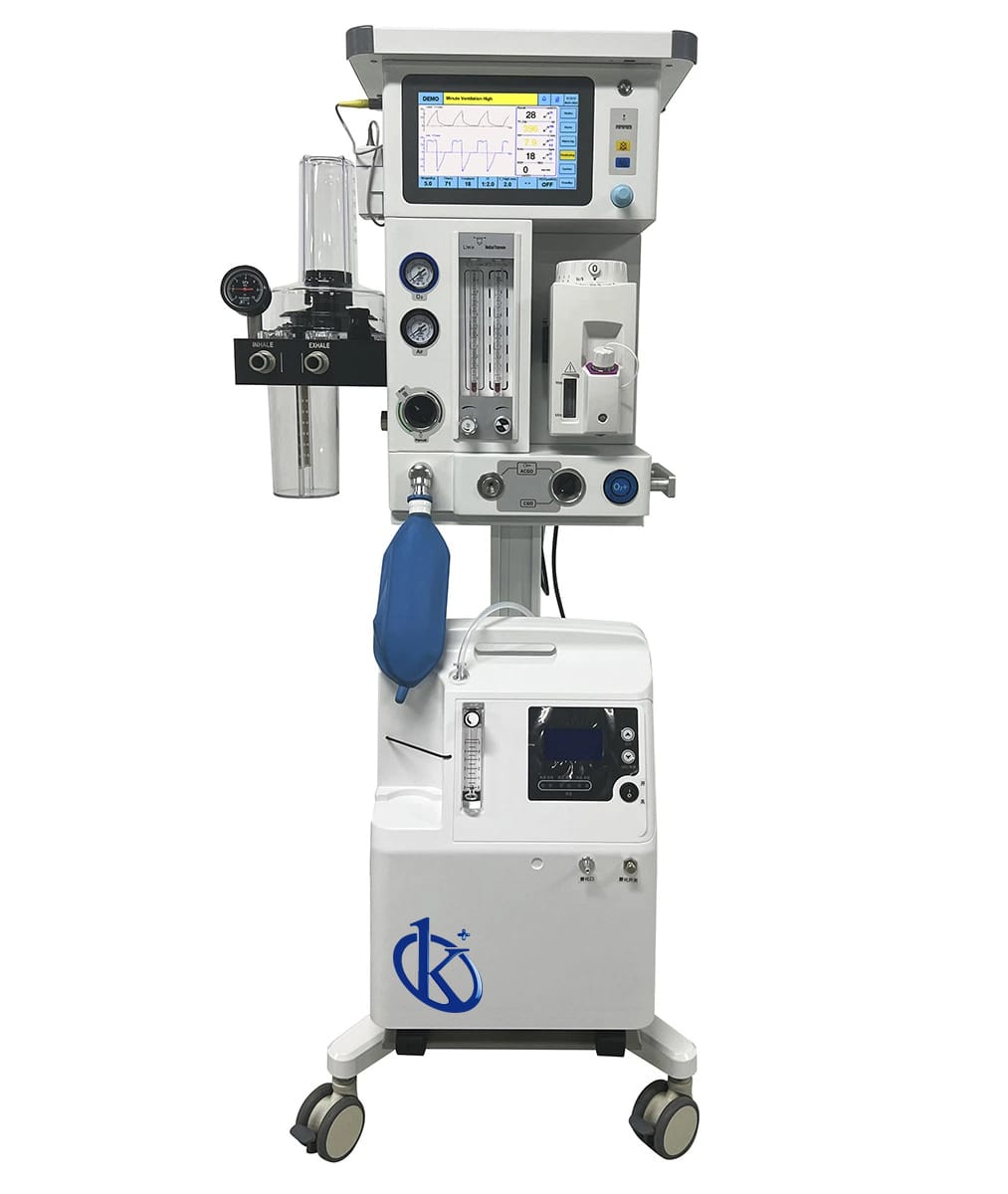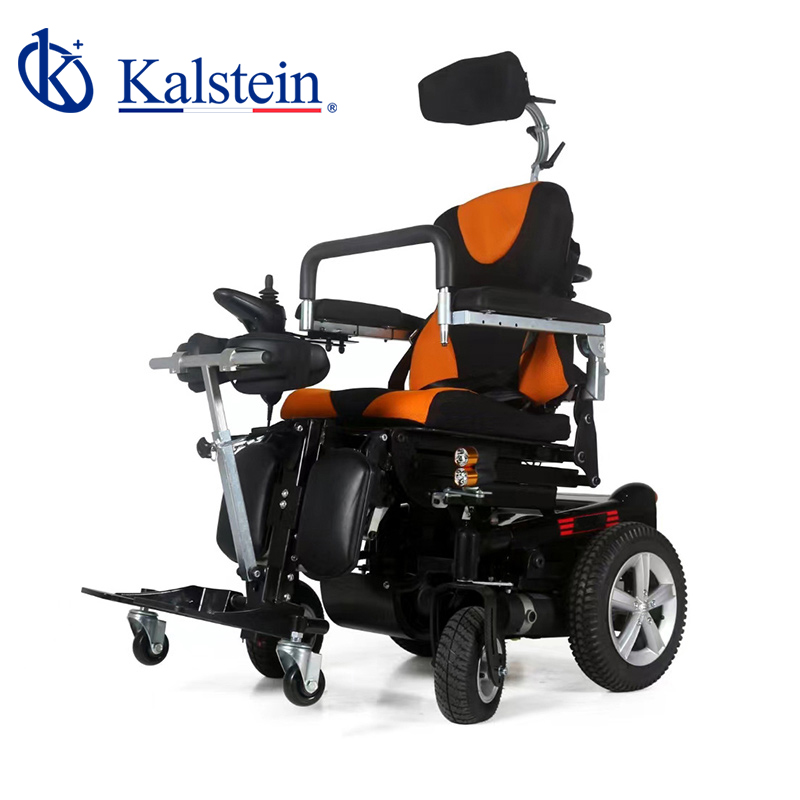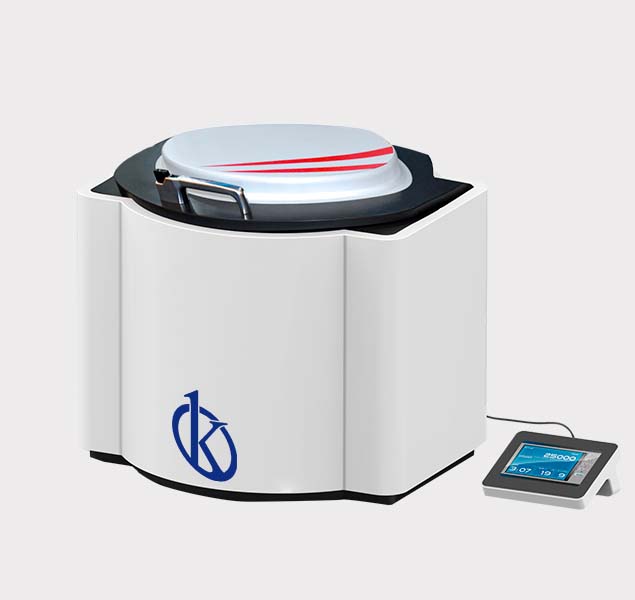A lyophilizer is a laboratory equipment that allows to carry out lyophilization, that is to say, it is an instrument that is used to remove moisture from a product by cold drying, thus obtaining a dehydrated product that can be rehydrated when needed, thus fully recovering its properties at the time of use.
Freeze-drying is a drying or dehydrating process that is carried out through progressive sublimation of the solvent or water present in a sample. This process is characterized by the use of low temperatures which prevents some volatile elements from being lost, the opposite case that occurs in conventional drying processes. In progressive sublimation, the direct passage of the ice (solid) to gas (steam) is achieved without going through its liquid phase.
Types of freeze-dryers
Freezers are highly sophisticated equipment, and thanks to technological advances there is a great variety, which are perfectly adapted to the field of application in which they are used. We have freeze-driers that are used in the food industry, whether it’s to make space food, military food or dehydrated food. As well as to make dairy products. There are also lyophilizers used in the pharmaceutical industry to conserve drugs and vaccines. As well as there are freeze dryers that are employed in the recovery of documents damaged by water.
Freezers can also be grouped by size into laboratory units, pilot units for process development and expansion, and larger production units. Likewise, freeze-driers can also be classified according to the type of product chamber:
- Lyophilizers in which the product is usually pre-frozen and in bottles,
- Freeze-driers with shelves where the product is placed on a tray or directly on a shelf.
- Freezers with units that combine with both drying options.
How does a lyophilizer work?
Firstly, the material to be freeze-dried is frozen at sub-zero temperatures, thus maintaining its molecular structure. The frozen material is inserted into the freeze drier, where there is a vacuum pressure, due to the action of a vacuum pump which allows it to function properly. This pump allows 95% of the water present in the sample to be sublimated, and in this way, the product dries without the need to use temperatures above the ambient temperature.
The heat contained in the lyophilizer provides the necessary energy to the water to pass to the gaseous state, accelerating the process. And the gas that’s left loose, is condensed at low temperatures, returning back to solid state.
What are the advantages of lyophilization?
- You get products that can regenerate very quickly, just by rehydrating them.
- The shape and characteristics of the final product are essentially the original, bone, physical, chemical, biological and organoleptic properties are maintained.
- It is an ideal process for drying thermolabile substances.
- Oxidable constituents are protected.
- The final moisture content is very low.
- Lyophilized products can be stored for long periods of time.
What should you consider before purchasing a lyophilizer?
- The moisture to be removed, as, depending on the amount of moisture to be removed, will be the size of the freeze-drier that best suits your need in the laboratory.
- Frozen type.
- Freezing point
- The format or presentation of the samples.
What do we offer you in Kalstein?
At Kalstein we are manufacturers of laboratory equipment of the highest quality and at the best prices on the market. This time we present the lyophilizer YR05187 is suitable for laboratory freeze-drying experiments. This lyophilizer is widely used in medicine, pharmacy, biological research, chemical industry and food production. After the freeze-drying process, the long-term preservation of the products is much easier. They can be restored to their original state and maintain their chemical and biological characteristics after watering. HERE
For more information we invite you to take a look HERE




